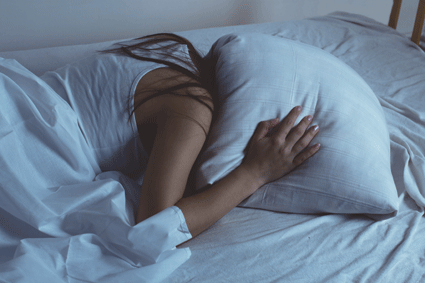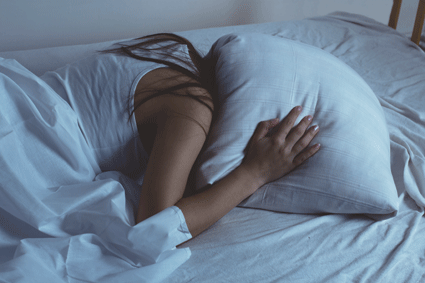You know that there is something that prevents you from sleeping and you still cannot discover what it is, (Take it easy) and take these tips and with a little luck you will be in the arms of Morpheus.
Surely more than once you have gone through this annoying situation that anyone can suffer. In reality, insomnia does not respond to anyone and can be caused by a number of reasons! But as soon as you detect them, it is likely that you can avoid them and thus improve your sleep habits to 100%

I have insomnia?
Although it seems that insomnia is reduced only to the fact of not being able to sleep, it is something more complicated than that. In fact, there are several stages or degrees of insomnia, ranging from the mildest to almost becoming a disease
When you have a hard time falling asleep and tossing and turning in bed looking for the right position to start sleeping.
Waking up more than three times a night, completely cutting off your normal sleep rhythm.
Having the feeling of not having enough sleep during the night
Waking up too early for no reason.
Staying awake for more than 24 hours because you can't close your eyes.

Situational Insomnia
It refers to the one that is produced by a great emotion caused because you possibly have a large number of events in the next few days and thinking about everything you are going to do, does not let you sleep. Family commitments, financial, disrupt your sleep, when this happens, there are some changes in your character such as irritability, anxiety and laziness, present in any type of activity.
Insomnia from substances
Definitely, what we eat greatly affects all our vital functions and of course, it also influences how much and how we sleep. Consuming excess coffee, tea, cola and of course, also cigarettes, in the long run creates a progressive decrease in the desire to sleep, as well as in the time in which you sleep, and can even increase the number of times where you wake up at night.

Psychophysiological insomnia
If you feel worried because night comes and you can't sleep, you are in serious trouble! Unintentionally, sometimes we make certain relationships between "sleeping" and the place where we sleep, see bedroom. "But the worst comes when, because of so much worry, you couldn't sleep the night before and you start to worry about whether you won't be able to sleep again. .
You force yourself to sleep with the typical "I have to sleep" thought, and this only makes you frustrated, waking up at night with the only obsession of checking the clock to see how many hours you have slept. If it is early, you will worry that you have slept little, and you will wonder if you can do it again. If it is late, you may be bothered by the idea that you will not have enough time to go back to sleep again, and thus a vicious cycle will form that can get worse. The most curious thing is that when you have this type of insomnia, you usually sleep better in rooms other than yours: the study, the TV room, the living room ...

Believe it or not!
Excessive exercise shortly before bed will not help you fall asleep in the least, quite the contrary.
Never go to bed hungry because you will be tossing and turning all night.
The same situation is repeated when you are thirsty before going to bed or wanting to go to the bathroom.
Having irregular bedtime and waking hours can contribute to insomnia.
Environmental conditions such as darkness, silence, and temperature are vital to getting or not getting to sleep.

Traveling ... always awake!
When you take a very long trip, where the schedules change drastically, your sleep is completely altered and there is a lag between your biological clock and the time you are used to. This is called "jet lag", and it is characterized by having insomnia at night and sleep during the day, being super sensitive and having less ability to concentrate These disorders usually disappear as your body gets used to the new schedule.
To sleep as they say out there soundly:
Go to bed only when sleepy.
Use your bedroom only to sleep.
If you really realize that no matter how hard you try you can't get to sleep, get up and do something relaxing like reading or watching TV.
Try to avoid naps.
Use the alarm clock to try to get up at the same time every time.




